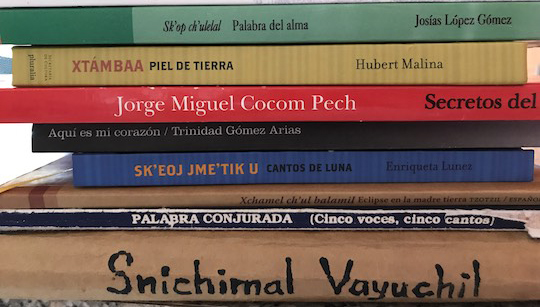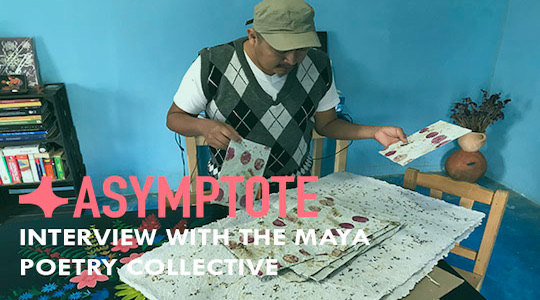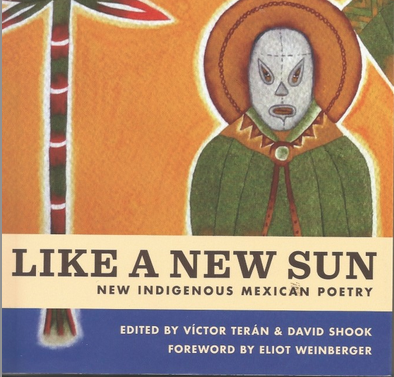This week saw huge events to mark International Women’s Day around the world with its theme this year “Let’s all be each for equal.” Our writers are bringing news this week too of celebrations of underrepresented voices who, through their literature, translations, and discussions also strive for equality: a weeklong Instagram Takeover sharing the work of seven Tibetan women; an international symposium of Indigenous writers in San Diego; and two important forthcoming translations of Brazilian voices. Read on to find out more!
Shelly Bhoil, Editor-at-Large for Tibet, reporting from Brazil
There is a slow but sure arrival of women to the Tibetan literary scene, evident in the takeover of High Peaks Pure Earth’s Instagram by seven Tibetan women, one each day, beginning February 24, the first day of Losar, the Tibetan New Year.
In the cavalcade of visual stories, Asymptote contributor Chime Lama threw poetry exercises with shapes and games. A peek-a-book at her concrete poetry collection makes one anticipate it! Tenzin Dickie, the editor of Treasury of Lives, brought Tibetan humor and wisdom with snippets from her forthcoming family memoir—“if you don’t control your appetite even your knees are part of your stomach” or “a bucketful of vomit for a handful of food.”
Beijing-based Tsering Woeser’s resistant rootedness in her inner exile is telling from the Dalai Lama’s photo, banned in China, at her Losar altar. She showed a view from her apartment window, where a blizzard had occasioned her poem “But It Was“. Kaysang shared the view of Dharamsala from her office space, calling it “Exile Home, The Only Home I’ve Ever Known”. She also left a heartfelt note on sustainable gratitude. Gratitude is something always becoming on Tsering Wangmo Dhompa for her late mother, whose photo she carries wherever she goes. In a work in progress, which Tsering shared, the discerning woman resists “the man who was uncertain of being loved” because “At best, he saw me as the best / of the worst number.” READ MORE…








